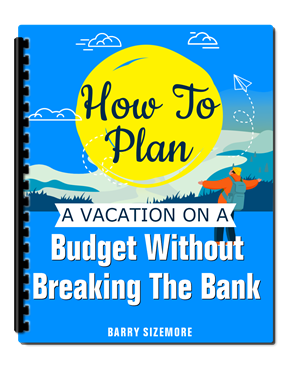When you're planning to travel abroad, you need to pay attention to currency exchange rates to ensure you're getting the best deal.
It's essential to understand the basics of currency exchange so that you can save some money.
Even a slight difference in exchange rates can make a significant impact on your budget.
In this article, we'll share ten tips on how to save money while exchanging currency.
1)) Research
Before you move to another country, conduct some research on its currency, including the exchange rate, fees, and taxes, so that you know what you're getting into.
2)) Use Credit Cards
Credit cards are the best way to pay for goods and services abroad. In some cases, you can even avoid transaction fees, depending on your bank.
Just ensure that you use a card with no foreign transaction fees.
3)) Avoid Airport Currency Exchange Booths
Currency exchange booths at airports often charge significant fees because of their location.
It's always better to exchange currency before you leave or at a bank or reputable exchange office in the city.
4)) Compare Exchange Rates
Don't settle for the first exchange office you come across. Instead, take the time to compare the exchange rates offered by different providers.
Use online comparison tools to work out the amount you will receive after all fees, taxes, and commissions have been deducted.
5)) Withdraw Cash
If you need cash, don't use your credit card, as they often charge high withdrawal fees.
Instead, use your ATM card to withdraw some money in the local currency, as it's the best way to get cash when abroad.
6)) Be Mindful When Tipping
Tipping is standard in some countries, while it's not in others. It's essential to learn about the culture and customs of the country you're visiting to avoid over-tipping or under-tipping.
7)) Use Local Currency
If you're in a place that accepts both local currency and USD, use local currency, as you'll get a better deal when you use the local currency.
8)) Avoid Dynamic Currency Exchange
Some vendors or ATMs may offer the option to convert to your home currency.
This is known as Dynamic Currency Exchange, and it can be more expensive than using the local currency.
9)) Plan Ahead
Don't leave currency exchange until the last minute. Plan ahead and make sure you have enough cash with you for your trip.
Consider pre-paying for your accommodations and some activities to avoid unnecessary currency exchange fees.
10)) Use Exchange Apps
There are several exchange apps that can help you find the best rates for currency exchange.
Some also offer complimentary currency conversion and alerts for when the rate is favoring you.
Conclusion
Currency exchange is a significant part of traveling abroad, and saving some money on exchange fees is always a good idea.
By following these ten tips for saving on currency exchange, you can make the most out of your money and enjoy your travels without overpaying.
With a bit of research and planning, you can avoid the high fees and unfavorable exchange rates that could impact your trip's budget.
So, take advantage of these tips, and happy travels!
Download Our Free E-book!







